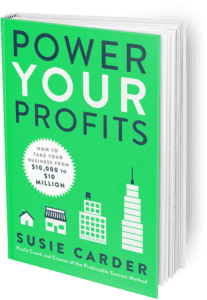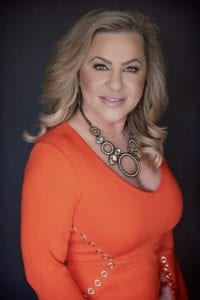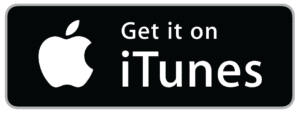Susie Carder, Author of Power Profit, asserts that if you have no bigger WHY and you’re doing it all for the money, you won’t grow your company.
Your mindset comes from your big WHY. If there’s no bigger why and you’re doing it all for the money, you won’t grow your company. It has to be that passion that motivates you and gets you out of your bed. Meny Hoffman’s guest in this episode is Susie Carder, who went from being a low-paid hairdresser to becoming an entrepreneur and creating not one but two $10-million companies. Susie talks with Meny about the importance of having the mindset before the skillset to being successful in your business. Listen to this episode and discover Susie’s “WHY” and how it helped her succeed. Tune in!
Listen to the podcast here:
Download the audio file here.
What’s Your Big Why? A Mindset That Will Grow Your Company—with Susie Carder
This episode’s guest is Susie Carder. Susie went from being a low-paid hairdresser to becoming an entrepreneur and creating not one but two $10-million companies. Her unique abilities to simplify complicated issues through proven systems that are guaranteed to create dramatic growth for any company. Susie has helped over 100,000 entrepreneurs increase their revenue by more than 3,000% and work with top business moguls, including John Assaraf, Lisa Nichols, Steve Harvey, Doug Carter, and Paul Mitchell.
Her newest book, Power Your Profit, is a bulletproof start to finish plan for taking your business from startup to the multi-million-dollar mark. In our interview, Susie and I discuss the importance of understanding that you need the mindset before the skillset to be successful in your career or your business. Also, pay attention to how Susie discusses how she had failures and successes, and how each of them is important for life lessons and business growth, in general. Also, pay close attention to the practical tips she shares about how to go about not growing too fast or too slow and everything in between. Without further ado, here is my interview.
—
Thank you for joining me.
Thank you, Meny, for having me. I appreciate it. I’m looking forward to serving you. Thank you for everything you are doing for our industry. We need more leaders like you.
I appreciate it. We met and we’ve got acquainted via somebody, putting the two of us in touch. When I saw a little bit about your story, your past, I figured this is a person I want to bring on the show because we always offer no-nonsense advice. When you have this experience about building two $10 million companies and all the life experience, the business experience, the good, the bad, and the ugly, as we say, let’s talk about it. We don’t talk enough about it. Therefore, it’s important.
I was at a business conference and I spoke to someone in the hallways and they felt like, “All these successful people are on-stage. I’m not even sure I could relate to it.” I said, “I promise you. Call them aside. They have a ton of stuff on their mind that’s not working the same way that they are on stage saying that things are working because this is how business is done.” Therefore, I love when I could speak to like-minded individuals. Before we get into the nuts and bolts and a little bit more into the questions that I have prepared to ask you, tell us a little bit about your past and how you’ve got to the stage where you are.

I have been a serial entrepreneur since I was a kid. I grew up in a large family. There were nine kids. Bobby, Ronnie, Stevie, Terry, Johnny, Shelley, Susie, Kelly and Debbie. The only thing we learned about money was, “There isn’t any, don’t ask for any.” At an early age, I had to be an entrepreneur if I wanted to do anything, go to the movies, if I wanted to do sports, our parents didn’t pay for it. We paid for it. I sold everything possible, from Avon as a little kid to any of the subscription things that you could do.
With that many kids, there wasn’t higher education talked about. I didn’t know that college was an option until I was in my 30s and my dad said, “Go get a job. Go get married.” I could do both. I am coachable. The average hairdresser makes about $30,000 a year. I realized, “I can’t live on $30,000 a year. I’m in Southern California and I need to make more money.” I became an avid learner of everything I could to build a business.
Fifteen percent of our financial success is based on our technical ability, the other 85% is everything else. We do sales, marketing, operations, finances, building the business and the infrastructure. Once I implemented those tools, I then was able to build $250,000 a year in three days a week, which is unheard of in that industry. It’s such an anomaly. I then went on to build one of the top salons in the country. We are in the top 1% in the nation and then the top 10% in the world.
We earn that right by the dollars that we produced. We won top salon for three years in a row. That’s the top 200 salons out of 326,000 salons in the country. It’s the same thing, when you were talking about getting to know each other, wanting to make a bigger difference, there was only much you could do at training and you didn’t know if they implemented it. I’m like, “I need to know people are doing this work.” If I’m away from my family, away from my kids, sleeping in motel rooms, please let me know that you are actually implementing it.
We built the largest technology company in the beauty industry. We had to learn how to raise money. I didn’t know anything about the SEC. I didn’t know what was legal, what was not. I went to this millionaire’s forum, your business had to be doing $1 million to go, to learn how to raise money. From that standpoint, I realized they were teaching all these amazing things to raise money but nobody was teaching the infrastructure of the business. These people are going to go raise millions of dollars and they are going to lose millions of dollars because they are not building the infrastructure.
Talking to the founder of that organization, he goes, “Great, Susie, why don’t you teach it?” I’m like, “What? I don’t know anything about their business. I know about the niche that I have in this business,” so he threw me out there. Clients then would come to me and say, “Can you teach me?” I’ve got to tell you, my fear, which happens a lot with entrepreneurs, the fear of the unknown, the fear of uncertainty, the fear of, “Will they look at me as credible?”
I pushed business away for years. I then finally said, “These people keep asking me. I’m going to double my prices.” They did not go away. They came back and said yes and paid me. I’m like, “I’m doing this,” and then realized business is business is business. There are sales, marketing, operations, finance, cost of goods, the industry, what should be profitable, how much profit should we have, how much gross profit should we have, and what makes a business can be duplicatable. That’s all I have done for myself and done for my clients. I have built ten companies, two $10-million companies, seven multi-million-dollar companies. There were a couple of dismal failures in there as well because you can’t get to this level and not have the failures as much as the wins.
[bctt tweet=”If you look at any great moment in your life, you make a decision and there’s no going backward.” username=””]
I’m happy that you mentioned failures versus learning moments. I feel there’s a cliché when somebody says, “It wasn’t a failure. That was just a learning moment.” It was a failure, call it as it is, but there’s a reason, obviously, we have to get past that. I want to dig in a little bit on what you said. It’s important to weigh in on this. Sometimes people ask me, “Why do we need the full background?” It’s important to put things in context, especially if the person that you have never heard from before. I do want to dig into some of the stuff you mentioned.
I want to start early. You mentioned knowing that getting support from your family, as far as going to the movies or going out, doing any sports is not an option. You said, “I’ve got to do it on my own. I’ve got to go out there and start selling.” Those are the typical baseball cards to lemonade stands and so forth. If you look back on your life and getting over those humps, those failures, saying, “I could do it,” and strategically figuring out how to do it, are those moments or is that childhood upbringing that gave you this or maybe that hope? What would you say to entrepreneurs that that’s not only it?
Part of it is a skillset. I was committed to learning. If you look at any great moment in your life, you make a decision and there’s no going backward. I see too many entrepreneurs or people who want to leave a C-Suite and go into entrepreneurship. The back door is they are making $250,000 a year, so that’s hard to give up. As a child, there was no back door. If we didn’t make the money, you didn’t get to go. You didn’t get to do the sport. As an entrepreneur and in the vocations that I have chosen, which is entrepreneurship, there’s never a back door. If you don’t make money that week, you don’t pay your rent, bills, mortgage, groceries and childcare.
The back door is more of a hindrance because we don’t have to risk it all to get it all. I have always had to risk it all to get it all. The risk, because some people are uncomfortable with the risks and not that I was ever comfortable. It has always been uncomfortable but I look at fear as a flag of going in the right direction. If you are too comfortable, you don’t have the butterflies, the nervousness that you want to throw up, you don’t know how to do this, so you don’t have to figure it out if you are comfortable.
Meaning, you have this exit strategy, a job, a spouse or somebody that can write a check if you get in trouble or if you have credit that you are consuming. I had that hunger to learn to increase my income. It wasn’t always natural for me. Naturally, I’m creative like most entrepreneurs, I love creating things and developing content. The reality is, we are sabotaging ourselves because we keep creating and we don’t get momentum. We have to get momentum when you are building that.
I want to add on what we discussed, I remember a long time ago, I had a conversation with somebody that’s coming out of a wealthy family and he said, “I’m listening to all these motivational speakers and everybody has this sob story, and that they were forced to be successful. Ultimately, they ended up being successful. I don’t have that. I didn’t start my business in a garage. I started in a nice office with nice furniture. Could I be successful even if I don’t have that garage startup story to share or sob story of how I was poor and all of a sudden, I was able to get to where I am?” My answer to that and basically what I heard from you, let me know if you agree, which is, it’s a mindset. The reason for the mindset could be different. The reason for the mindset could be, “I don’t have anything that somebody will give me. I have to create on my own,” or the mindset could be that, “My family is wealthy but I want to do it on my own. I don’t want a handout from my family.”

That’s the hunger I’m talking about. There’s the why. What is your big why? Why are you doing what you are doing? Mine was survival. Yours was making a difference. Whatever that might be, someone else might be bringing new technology. The technology company we started, I didn’t know how to build a technology company. I knew what the market needed. I was wanting to serve my market. It is looking at what is the bigger reason besides money, besides prestige. There has to be a bigger why. If there’s not a bigger why then it’s just a business. You can’t do it for money and business. It has to be that passion that you have for something, and it could be providing for your family, it could be making a name for yourself. Let’s look at why you do what you do that motivates you, that gets you out of the bed at o’dark 30 to be able to do interviews, to be able to do anything you have to do because that why is big.
I want to get to the next stage that you shared before, which is going from this one salon to ultimately figuring out how could I duplicate it in a way that we can have multiples and we can create systems and processes? What is the mindset? What can you share with our readers? At which point is the person ready for that? Ultimately, what is the proper setup if somebody wants to expand from that retail store or from servicing a smaller community and ultimately, they want to go big? What are the practical tips that a person needs to say, “You are doing this the wrong way?”
One of the best books I read, and if most entrepreneurs have read this book, was Michael Gerber’s The E-Myth. I read that early on in my career. I’ve got in a bad car accident and I broke my leg, bruised my rib and had to be out of work for a week. Being out of work for a week for me was like being out of work for a year. Everything relied on me. I owned a job. I realized that I have to go back to work because I did not set my business up to rely on without me and my financial infrastructure.
I was making great money but I was spending money on everything. It’s not enough that you make $250,000 a year. It’s not enough that you make $1 million, $10 million, $1.1 million or $256,000 a year, whatever that number is. There has to be that strategy of, “What if and what happens,” and we all know about it. We have all planned for a rainy day. Strategically, putting that in place so that if something happens to you, do you have Keyman life insurance? Do you have a savings account? Do you have a team that can step in?
I decided I’m going to figure out how to have a business grow, and especially in a business that you are the technician. Back then, I was the hairdresser, a salon owner, became a trainer, and then I was on the road. I have always been in this place of a technician. I started setting up the systems and the business to rely on without me. In the beginning, I didn’t know what that meant. I’m going to put checklists together. Do this and you get this.
In my new book, Power Your Profits, I talk about systematizing your business so that you can set it up to sell. As one day you are going to want to sell your business, step away from your business and want some freedom. When I look at that, my businesses have always grown when I’m away. In 1998, I then had another car accident. I promise you, these are not my fault. This time, I had to have neck and back surgery. I was out of work for a year.
When I’ve got done with my back surgery, they said, “We are not sure if you will ever walk without assistance.” I’m like, “What do you mean?” They are like, “You will need either a walker or a cane.” I’m like, “No, this is not a walker lady.” My mindset said, “No, I would not believe it. What do I need to do?” I strengthen my core, strengthen my back, strengthen my muscles. I will strengthen all that because I didn’t want that as my reality.
Sometimes we are managing our lives as if we are in that condition. I’m broke. I wasn’t born into a wealthy family but it’s not your condition. You manage a condition and you create your reality. Setting up your business, one day if something happens to you as it did for me, literally, I’ve got ran over by a car, could your business survive? My business grew 30% that year. It was eye-opening. It was like, “I am in the way. How can I allow my team to do more and me to do less?” I had learned leadership was you have to be in first place, be the example you want people to see. You walk your talk.
The reality was, I had to learn how to empower my people to produce the result, versus me showing them because a lot of times that would demotivate them because I was the superstar, the hero, the one who let them lead the charge and see how that works. I have a checklist in Power Your Profits of putting the operational systems in place because that’s how I started with checklists, on Page 143. Go through the checklist. Go look at what do I need to put in place. Modify it for you. Start there, start somewhere so that we have an asset that we can build and possibly sell or if you don’t sell it, then your team can run it and you know how to run it because you have every process written down.
On that note, I always tell business owners that a business owner is responsible, paraphrasing what Michael Gerber, uses working on the business versus in the business. That is a place we are not looking at, obviously. The worst-case scenario is, you can’t work for a year. Ultimately, even if you want to enjoy yourself and being on a couple of weeks of vacation but a regular business owner wants to be in present as a leader, they want to work on the business. The processes are way more important for every day in the business. They take you out of the day-to-day operational pieces of the company so you could focus on what the business needs from you, which is vision, culture and focusing on the bigger picture and stuff like that. Maybe it’s less process-driven but more leadership-driven.
[bctt tweet=”Look at the bigger reason besides money, besides prestige. There has to be a bigger why. ” username=””]
If you are born that way, you go, “I had to learn how to be a leader and I had to wean myself,” however we look at it, because you can’t do it overnight. My experience is I’m working with other leaders. I coach thousands of entrepreneurs a year. Let’s wean ourselves off of the job that you are doing in the business to go, “Who on my team can do this better than I can?” If the answer is no one, then we need to look at your hiring practices.
I hire people who are smarter than me, more talented than I am in the area that I’m hiring them for. If I’m hiring a COO for my company, they better tell me what needs to be done versus me telling them what to do. That’s my biggest reality check. If I have to tell Meny how to do his job, one of us isn’t needed. The reality is, that’s not going to be me. I indoctrinate my team in that philosophy to go be a leader. Inside that, we are going to make mistakes. I’m not okay with the same mistake over and over again.
Developing people and their leadership and even my own was an obstacle for me. Also, having coaches and mentors in my life, I have always had people who are coaching and mentoring me who are ten steps ahead of me. I have three financial coaches, a business coach, a personal development coach, a nutrition coach, a health coach and a fitness coach. I don’t use them all at the same time. I’m not that cuckoo. I’m using and I’m checking into what I need in the season. If I’m growing, like the season when I was raising money, I needed coaches to teach me how to do that legally, ethically, that I could raise millions to build that other business. You have to look at, “What’s my superpower?” What I will say about coaches is, you have to make sure you do your due diligence. There are a lot of people saying that they have accomplished things or they are telling you what to do. That’s great in theory but not practical.
I’m sure you have experienced this a lot being a business owner is what sounds good in theory doesn’t always work out. We have to make sure that it’s tested. It’s tried and proven. Where are the results? I hired Brendan Kane. I don’t know if you are familiar with him. He’s amazing. He is data-driven, analytical. He wrote the book, One Million Followers and Hook Point. He told me, “I’m selling 2,000 to 5,000 books a month.” I’m like, “That’s impressive. Can you show me the data? Can you show me your reports?”
I have had too many people say, “I have done this,” and maybe I am that lazy and didn’t do my due diligence or they were referral, that I didn’t look deep enough, and then wasted a lot of money. He was like, “Absolutely.” When somebody is ethical and they are producing the result, they don’t have any objection to sharing information with you especially if you are going to pay him a lot of money to support you in growing the business.
We must find people who are ten steps ahead of us to go, “Who can help me get here quicker or faster? Who can help me with whatever that milestone, that strategy is that you want?” I learned myself. I’m a student. I’m a lifelong learner. I love education. It fuels my soul to learn something new. I have 3 or 4 business books on my nightstand, to read blogs like this. I love Clubhouse because you can get this little bite-sized information in a short amount of time from some of the most amazing experts in the world.
Where can you get your education? When I was young and a young entrepreneur, I didn’t have money for a coach but books were my coaches. I would go to the library with my kids. I would sit there and devour marketing books. I didn’t know how to market. I then would devour finance books. How do I put my finances together? Look at whatever level you are at, wherever you are apt to go, “Who can help me take my business to that next level or take my personal life to the next level?” I believe in holistic success.

What I would add to this, when a lot of times we have conversations about growth, and everybody obviously, some people say, “I’m happy where I am.” A small group of people says, “I’m happy, I don’t want to grow.” There are then a ton of people that say they want to grow but they don’t do anything about it. A practical tip on that is that, when you are saying, “I want to grow myself every season, every quarter or something,” have a benchmark. “Where do I want to grow into? What do I want? Is it soft skills or hard skills? I want to be a better leader and communicate better.” Maybe there are these books or courses that you could take in communication. Have some plan. It’s not that I want to grow and satisfy myself. I’m listening to ten podcasts a day because even on podcasts, I’m not going to be biased into our show. One of the reasons I like the list of business podcasts is because the content is diversified.
A lot of podcasts, once you get into that, you are listening to a lot, it’s almost the same type of content coming on again and again. Sometimes in your growth phase, I would personally say I pause from this podcast and listen to a bunch of different podcasts, depending on what your growth strategy is. A practical point for our readers is when you are in the growth phase, and you want to grow yourself, figure out what is it that you want to grow into. What is the soft skill or hard skill? Do steps like listening, reading books, taking courses, speaking to a mentor, specifically on a specific growth path that you are looking to get through.
[bctt tweet=”Hire people who are smarter than you and more talented than you are in the area you’re hiring them for. ” username=””]
We have our students then rate themselves in each division that they have. In their sales division, leadership, mindset, operations, finances, health and well-being, that you can see if you rate yourself on a scale of 1 to 10 and you are doing a bunch of 2s and 3s, that tells you where to start. A lot of times, as business owners, we are just keeping away from our business. When you get out of the busyness and assess your business, we do it every year in our own company. We can see where the holes are because as you grow, a $1 million business is different than a $2 million business. It’s a different team and infrastructure. A $2 million business is different than a $5 million business and a $10 million business is definitely different than a $5 million business. There’s infrastructure, team support and accounting staff.
Everything has to be shifted or tweaked. You don’t reinvent it. We are tweaking and growing as we go but we are always looking for our blind spot and not coming from something wrong but coming from what’s missing in my business? What’s missing in me as a leader? What’s missing in my team? Every year, we would play this game in the last company that I had. Just like when we were kids when we are picking our baseball teams, I would go, “Who do you pick, Meny?” You then would pick someone and then I would pick someone. If the last person nobody wanted, that told us a lot about our team. We went, “This person is left over,” and we are both looking into it, and then like, “I will take him.” That’s your weakest link. Your business will only grow as far as your weakest link. We have all heard that.
It’s looking at who they are, your planner reviews, your development plan, are they doing the work? Documentation is key when you are looking at people’s talent and skillset and where they want to go to the next level. I learned that the hard way. I’ve got sued by an employee. I thought I was the best boss but I didn’t document anything. It became her word versus my word. She documented everything. I’m like, “Yeah but that doesn’t get you out of trouble.” That was a hard lesson. That was some bloody knees and bloody elbows but I document everything now. I don’t ever want to be in that situation again. It was a hard lesson but a good lesson.
Let me get another couple of questions in. One question I have as soon as I heard about what you do is, at which point would you say to an entrepreneur, business owner or leader, that they are expanding too fast? Looking back on the different companies you had, companies that you went big, at which point would you tell a person to, “Slow down, you are going too fast, and you don’t have the infrastructure in place?”
For one, you need to look at your cashflow because cash is always a great indicator. With most businesses, their pricing is off. They are trying to stay ahead of the cashflow game, trying to go get the money and spend the money out, get the money in. I have always worked inside of a budget, not that I liked it but I always worked inside of it. My husband and I were partners for seventeen years, growing a business and that was his genius.

We would sit down every month and painstakingly go over every single detail. We then look at, “Did we need to invest it or did we not?” A good financial acumen of, “Let me save.” has made poor decisions. I have invested in something and didn’t have the ROI. When I’m talking to my clients, I want to make sure, “Is that financial infrastructure there to pay for that person if the results don’t come?” People get caught up and they said I will make $300,000 if they put this drip campaign together.
I’m like, “Hold your horses. That sounds great in theory but do we have people in the database?” Looking at it from a strategic standpoint to know if that doesn’t occur, is that going to be a financial hardship on the business? You can grow too fast and go out of business, and you can grow too slow and go out of business. The difference is cashflow. Can I sustain that level of growth? Can I sustain that level of infrastructure inside of your business?
You have a Big Money Business Summit coming up. Is it a virtual summit or an in-person summit?
It’s a virtual summit. When COVID hit, everybody went virtual. We went virtual. It has been amazing. We have done well at the virtual events. It’s not a Zoom snore-fest. It’s highly engaging, great content, great speakers for three days. We do it three times a year. One is a growth summit. This one is a sales explosion and September 2021 will be an expansion. We are looking at how we can increase sales in your organization. I give you the script that I use to close $100,000 clients as one of the tools. Follow the script. The script works. I find, as a consultant, we tend to talk our way out of business versus letting the consumer talk about their needs and what their wants are. We support you in that. The June 2021 event is on June 25th, 26th and 27th. It’s the Big Money Business summit. If that works for you, you can come. We also have September 2021, and that’s September 25th, 26th and 27th.
Let’s close with four rapid-fire questions. Are you ready?
I’m ready.
Number one, a book that changed your life.
The E-Myth.
I forgot to mention before, the first episode on this show was with Michael Gerber. If you have never read that episode, go back to that. Number two, a piece of advice you’ve got that you will never forget.
Show me who your friends are. I will show you who you are.
Number three, anything you wish you could go back and do differently?
Avoid the crash of 2007.
The final question, what’s on your bucket list to achieve?
I want to go to Greece.
I was there already. It’s a beautiful place. A lot of history there. Susie, thank you for joining me. I know that your time is valuable. I will forever be grateful for sharing some of your time with us.
Thank you. I appreciate you and I appreciate everything you are doing and thanks for sharing.
It’s my pleasure.
Important Links:
- Susie Carder
- Susie Carder – Facebook
- Susie Carder – Instagram
- Susie Carder – LinkedIn
- Susie Carder – Youtube
- Susie Carder – Twitter
- Power Your Profit
- The E-Myth
- Brendan Kane
- One Million Followers
- Hook Point
- Big Money Business Summit
- Michael Gerber – Past Episode
About Susie Carder
 Susie Carder started out as a low-paid hairdresser trying to support her 2 little girls. But working for someone else became a challenge (to say the least). So she decided to do whatever it took to create her own business. After much blood sweat and tears (mixed with cheap mascara) she went on to create, not one, but two $10 Million companies!
Susie Carder started out as a low-paid hairdresser trying to support her 2 little girls. But working for someone else became a challenge (to say the least). So she decided to do whatever it took to create her own business. After much blood sweat and tears (mixed with cheap mascara) she went on to create, not one, but two $10 Million companies!
Her core genius is the ability to simplify complicated issues by creating simple proven systems that are guaranteed to create dramatic growth for any company. She has helped over 100,000 entrepreneurs increase their revenues by more than 3000% and worked with top business moguls including John Assaraf, Lisa Nichols, Steve Harvey, Doug Carter, and Paul Mitchell.
Her newest book (number 10) ‘Power Your Profits’ is a bulletproof start-to-finish plan for taking your business from start-up to the multi million dollar mark!







